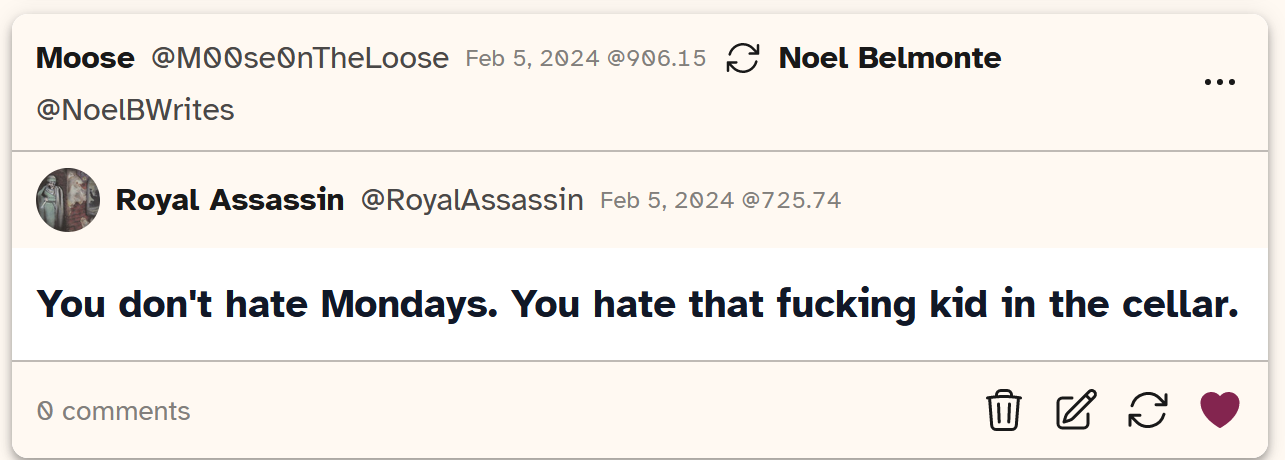"The Ones Who Walk Away From Omelas" by Ursula K LeGuin
Originally Posted 09/18/24
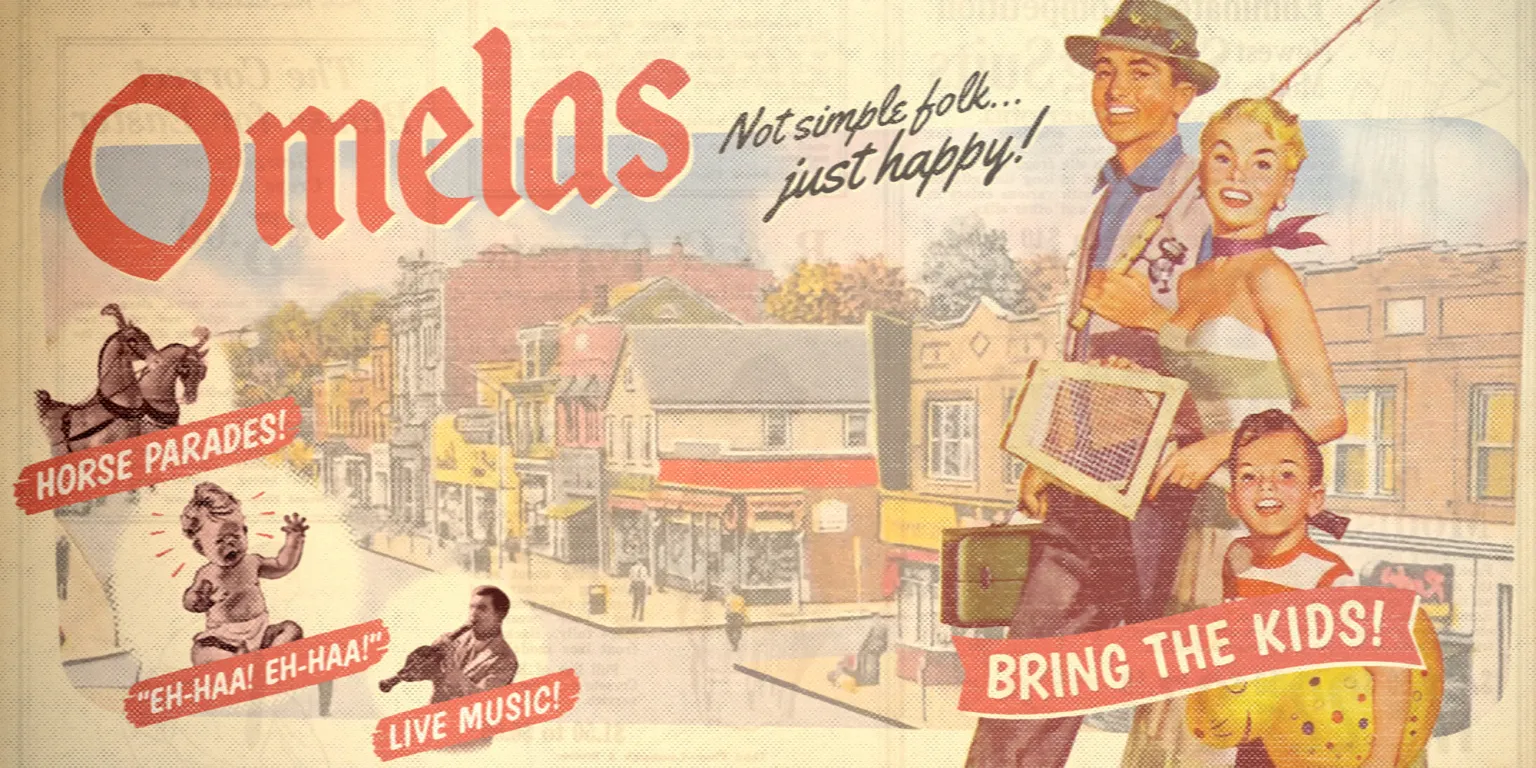
Quick Overview
Click Here to Read "The Ones Who Walk Away From Omelas" online.
This short story is only about 5 pages long, so I definitely recommend reading it! I ended up reading it because of another story I read that references it.
In Depth Review
This whole next section is going to be a summary which involves spoilers. Only read ahead if you don't mind that.
Summary
"The Ones Who Walk Away from Omelas" starts off with the narrator trying to tell you about a parade happening in a perfect city. Almost the entirety of the short story is the narrator trying to convince you how perfect of a city this is. He spends a lot of time trying to get the reader to truly picture the perfect city. Also that everyone there is happy. And not happy with the connotation of simple, or simple minded, or whatever. No, they are just simply, truly, happy because they live in a perfect city. At one point the narrator is trying to list ways in which it might be easier for the reader to picture the perfect city, by describing things that might be in different peoples perfect cities. This quote just sort of cracks me up whenever I see it:
But even granted trains, I fear that Omelas so far strikes some of you as goody-goody. Smiles, bells, parades, horses, bleh. If so, please add an orgy. If an orgy would help, don't hesitate.
I don't know, just always sort of cracks me up how thrown in there it is lmao
The author does spend the last few paragraphs though letting you know one important thing, after you've accepted how perfect the city is. In a locked cellar under one of the houses, with no windows and only a single door going into it, lives a child. Somewhere between 6 and 10 years old. The child can not leave. The child is not clothed, and can not talk to or see anyone. The only interaction it has is when people come to refill its food and water buckets, or to be shown that the child exists. The child used to know the outside world, before one day being put in here.
The narrator says this is the price the people in Omelas pay to live in their perfect world. There must be a child in that room at all time, suffering. Should someone rescue the child, their perfect city would instantly crumble. And so, the child must suffer, for the good of the many. Most people eventually accept this reality, but others Walk Away.
Thoughts
I like this short story. I think it's an interesting read, and that its messaging is pretty obvious. I've never been great at reading deeply into text, so things that sort of just beat me over the head with it makes my job a lot easier lmao.
Obviously we live in a world with trade offs. Most of us in first world countries have things like computers, phones, cars, etc. It's a pretty commonly known fact that in order for these things to be affordable, workers in other countries are being exploited, in some cases including children. Hell even clothing it's often spoken about how sweatshops exist where workers are barely paid anything at all. And yet we accept this. "Well someone has to make these things and I need clothing, so I guess I just have to accept it".
This story I believe distills that thought process down to its sort of purest and most extreme version - what if an entire city of people could have everything they wanted, be the happiest they could be, but the only drawback was one child suffers immensely. The narrator in the story doesn't really make any judgements on this - just simply mentions this is how it is for the people of Omelas, though some do walk away. I think it's an interesting premise to setup, and I think a lot of people would have a lot of different answers to it.
Wrap Up
I originally read "The Ones Who Walk Away From Omelas" because I read another short story that references it. I'll be talking about that short story in another post, and will link it here once it's done. Overall I think it's a good short story, and I originally became aware of it from Cohost. There's actually a bunch of memes about the short story I have saved, which I'll share below:
Memes
These are also spoiler-y so proceed at your own risk:
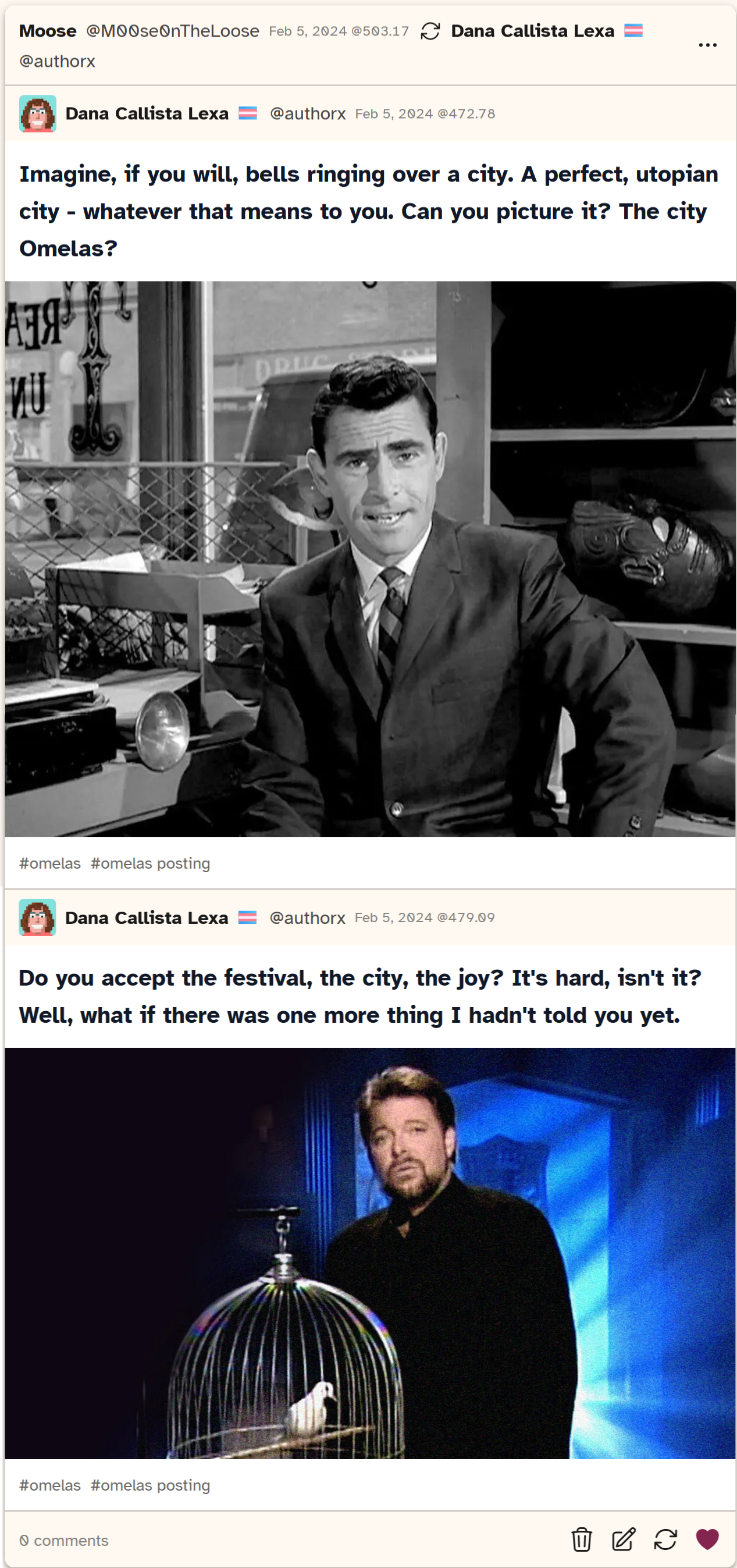
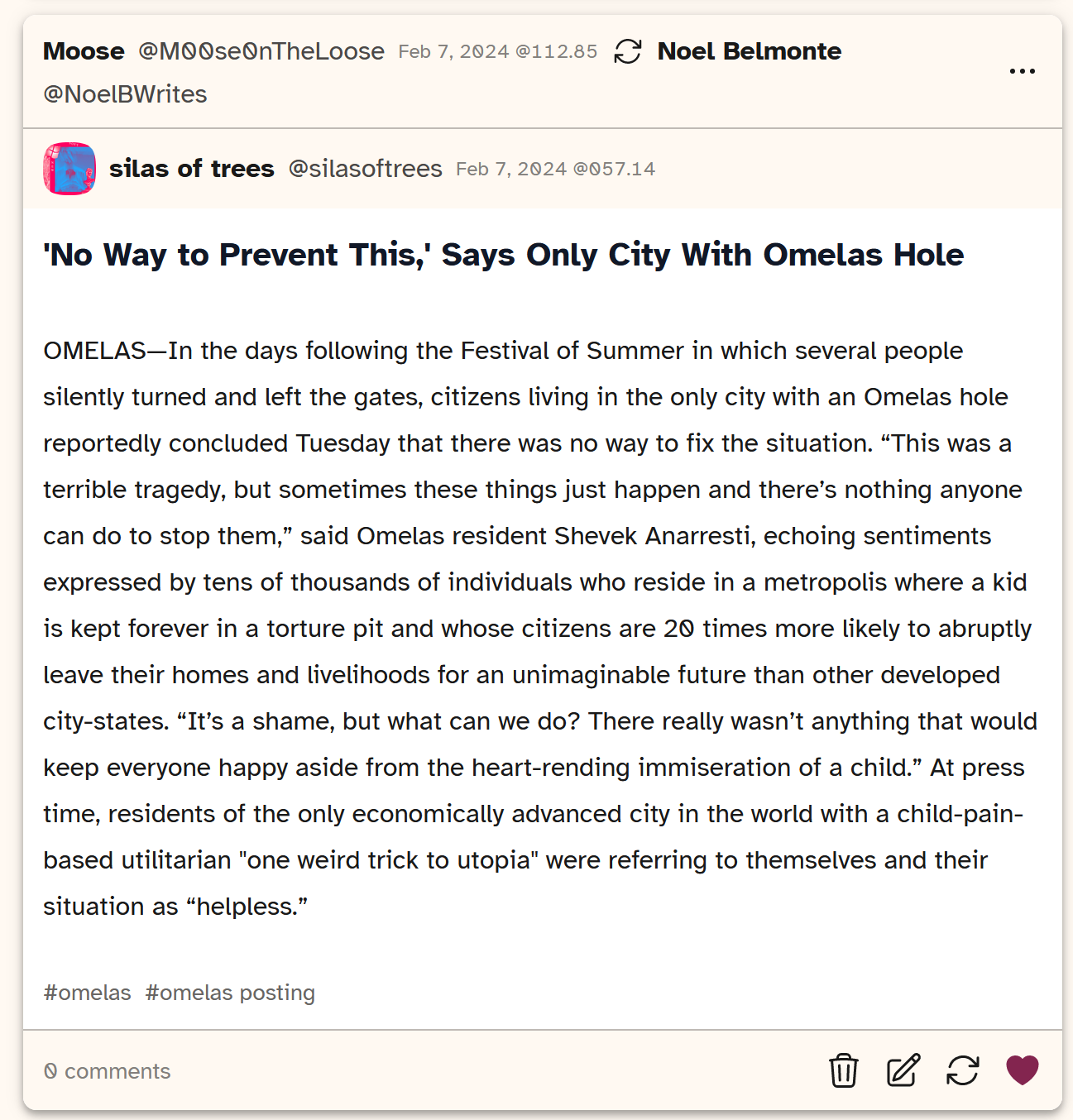
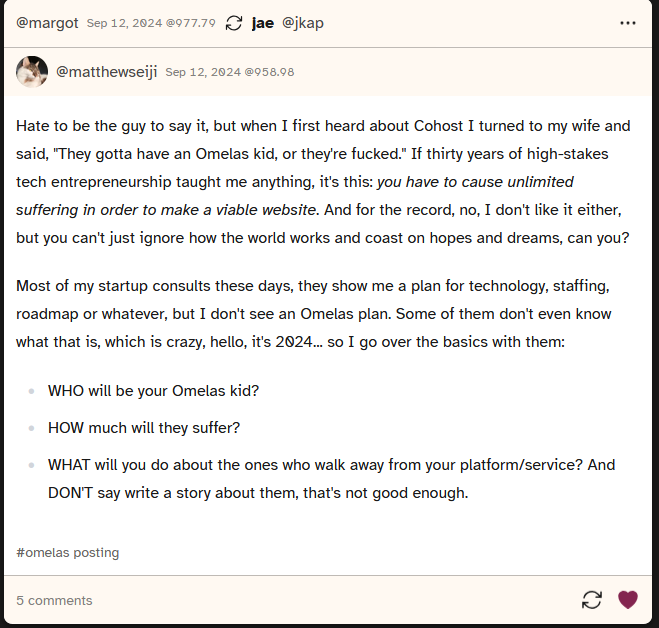
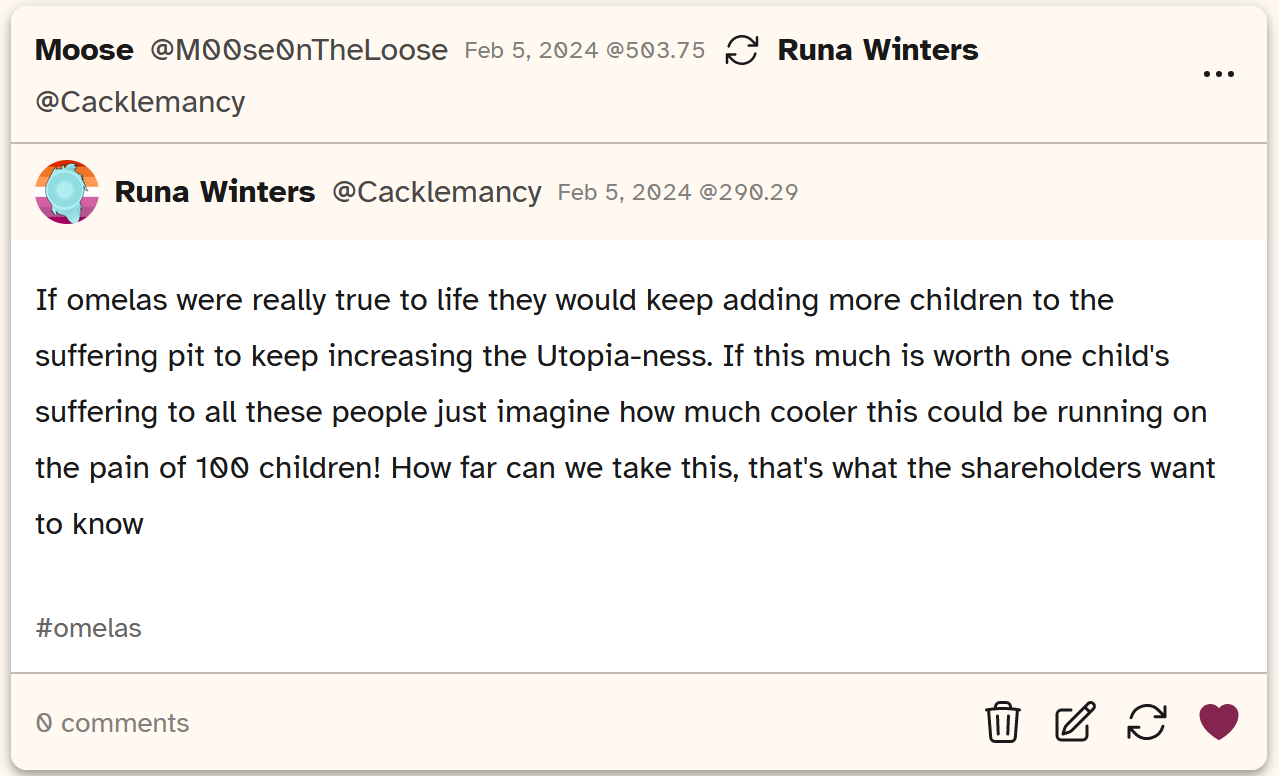
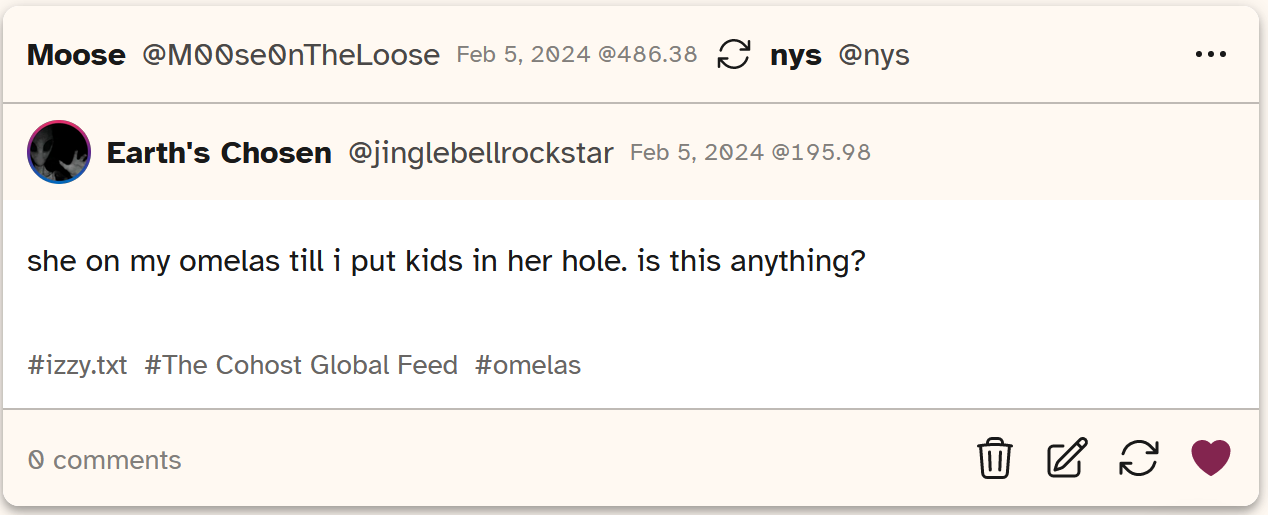
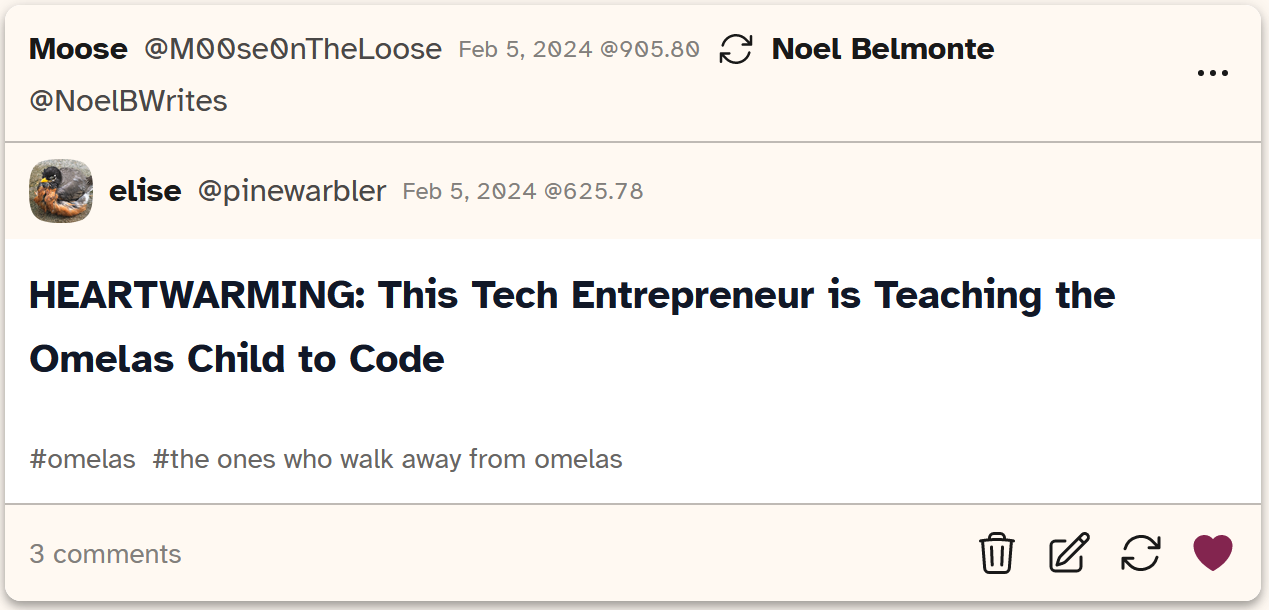
![Screenshot of a post from Cohost that shows a thumbnail as if it's a Tom Scott video from Youtube and the thumbnail says 'you won't believe its one atrocity'. Another user follows it up with 'I'm standing at the gates of the city of Omelas. For years now, people have been arguing about the morality of this city's utterly unique infrastructural setup. Now, I'm not going to get into that debate just yet - but stuck around, we *will* get there. First, I'm going to be getting a tour of the city - which, as you probably know, is famous for being an allegedly perfect utopia made possible, inexplicably, by the unspeakable suffering of one small child... *and I'm going to meet him*. It is then followed again with a user saying So that's that! Thank you once again to my hosts and guides, and to the suffering child for the opportunity to speak with him. Let me know your thoughts about this place in the comments. Do try to be polite about it. But as for me? It's time to walk away. [thirty seconds of crunching footsteps moving away from the fixed camera]](../../Website_Images/Omelas_Memes/Visited_the_city_of_Omelas.png)
